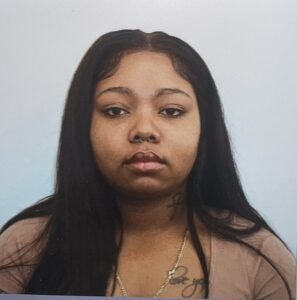-
Place of Birth
California
-
Tribal Affiliation
Kanza Tribe
-
Surname Heritage
Scotland / Ireland
Campbell History, Family Crest & Coats of Arms

The name Campbell was first used by a Strathclyde-Briton family from the Scottish/English Borderlands. It was a name for a person with a crooked mouth, or crooked smile. This nickname surname is derived from the Gaelic words cam and beul, meaning crooked and mouth. Nicknames could be derived from various sources. In general, they came from the physical characteristics, behavior, mannerisms and other attributes of the bearer.
Early Origins of the Campbell family
The surname Campbell was first found in Argyllshire (Gaelic erra Ghaidheal), the region of western Scotland corresponding roughly with the ancient Kingdom of Dál Riata, in the Strathclyde region of Scotland, now part of the Council Area of Argyll and Bute. Researchers suggest a joint progenitor of both the Campbells and the MacArthurs. The MacArthurs were the ancient senior sept of the Campbells. Arthur derives from the son of King Aedan MacGabhran, the 9th century Scots King of Argyll. The Clan Campbell was known as the Siol Diarmaid an Tuirc or, alternatively, the Clan Duibhne, and in a Crown charter Duncan MacDuibhne was ancestor of the Lords of Lochow in 1368.
Sir Colin Campbell, son of Sir Archibald, was succeeded by Sir Duncan in 1427. Sir Duncan’s second son, Black Colin of Glenorchy founded the Campbells of Breadalbane. He built the castle of Caolchurn and married Margeret Stewart, heiress of the Lords of Lorn. After the Battle of Harlaw in 1411 in which the MacDonalds were badly defeated by the King, the Campbells, took advantage of the situation to acquire more territory from the MacDonalds.
In 1517 the Campbells and the MacLeans of Duart were called upon by the Crown to again suppress the Lord of the Isles, MacDonald of Lochalsh, who had seized two Royal Castles. Lochalsh went to the scaffold and the Campbells acquired more land. Their Chiefs were bestowed with knighthoods, baronies and Earldoms. The Earl of Argyll becoming Chancellor of Scotland to James IV, and through his influence achieved a measure of peace throughout the Highlands.
Early History of the Campbell family
This web page shows only a small excerpt of our Campbell research. Another 244 words (17 lines of text) covering the years 1437, 1701, 1878, 1437, 1607, 1661, 1629, 1685, 1630, 1696, 1701, 1636, 1717, 1757, 1662, 1609, 1610, 1662, 1668, 1663, 1699 and are included under the topic Early Campbell History in all our PDF Extended History products and printed products wherever possible.
Campbell Spelling Variations
In the era before dictionaries, there were no rules governing the spelling or translation of names or any other words. Consequently, there are an enormous number of spelling variationsin Medieval Scottish names. Campbell has appeared as Campbell, Cambell, Cambel, Camble, Cammell and many more.
Early Notables of the Campbell family (pre 1700)
Notable amongst the family at this time was Sir Duncan Campbell, the first Earl in 1437; Archibald Campbell, 1st Marquis of Argyll, 8th Earl of Argyll, chief of Clan Campbell, (1607-1661); and his son, Archibald Campbell, 9th Earl of Argyll (1629-1685), a Scottish peer; Robert Campbell, 5th Laird of Glenlyon (1630-1696), Scottish noble, best known as one of the commanding officers at the Massacre of Glencoe; Sir Archibald Campbell, who became the first Duke of Argyll in 1701; John Campbell, 1st Earl of Breadalbane and Holland (1636-1717), known as “Slippery John”, Scottish peer during the Glorious…
Another 96 words (7 lines of text) are included under the topic Early Campbell Notables in all our PDF Extended History products and printed products wherever possible.
Campbell World Ranking
In the United States, the name Campbell is the 46th most popular surname with an estimated 370,563 people with that name. [1] However, in Canada, the name Campbell is ranked the 12ndmost popular surname with an estimated 71,068 people with that name. [2] And in Quebec, Canada, the name Campbell is the 548th popular surname. [3] Newfoundland, Canada ranks Campbell as 309th with 148 people. [4] Australia ranks Campbell as 26th with 50,389 people. [5]New Zealand ranks Campbell as 38th with 5,549 people. [6] The United Kingdom ranks Campbell as 47th with 84,730 people. [7] South Africa ranks Campbell as 662nd with 10,267 people. [8]
 Migration of the Campbell family to Ireland
Migration of the Campbell family to Ireland
Some of the Campbell family moved to Ireland, but this topic is not covered in this excerpt.
Another 63 words (4 lines of text) about their life in Ireland is included in all our PDF Extended History products and printed products wherever possible.
Campbell migration to the United States +
The freedom, opportunity, and land of the North American colonies beckoned. There, Scots found a place where they were generally free from persecution and where they could go on to become important players in the birth of new nations. Some fought in the American War of Independence, while others went north to Canada as United Empire Loyalists. The ancestors of all of these Scottish settlers have been able to recover their lost national heritage in the last century through highland games and Clan societies in North America.
Azysriah McCoy (House of Campbell)
(2000/04/21)


